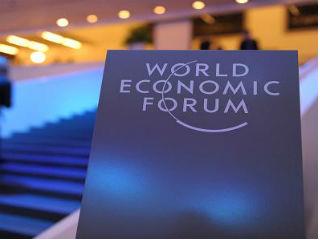Our Annual Meeting is often described as a talking shop, but it is also a working meeting for dozens of different communities from all regions of the world, all ages and all sections of society.

Last but not least, 100 leading businesses signed the Compact for Responsive and Responsible Leadership. The Compact was developed with the Forum’s International Business Council which will now develop a framework which will allow the measurement of a long-term approach.
by
Oliver Cann*
When Davos ends, our work continues on 50 year-round Forum projects aimed at supporting the United Nations Sustainable Development Goals.
Here are a few of the things that happened at our Annual Meeting in Davos this year:
1) A new fund backed by the Norwegian government has been launched that will raise $400 million and protect 5 million hectares in countries working to reduce deforestation and forest and peat degradation. The fund could lead to $1.6 billion in deforestation-free agriculture investments, also leading to job creation and economic growth.
2) The Coalition for Epidemic Preparedness Innovations (CEPI) was officially launched at the Annual Meeting with the aim of quickly reacting to epidemics by creating vaccines that could be released quickly once an outbreak occurs.
3) Signatories to the Forum’s New Vision for Arab Employment project said they have now helped re-skill 250,000 people since 2013, and are now targeting 1 million current and future workers.
4) The Forum teamed with the University of California Santa Barbara’s Marine Science Institute to build a coalition to protect the world’s oceans and marine resources; a global commons estimated by the World Wildlife Fund to be worth $2.5 trillion.
5) The Forum mobilized a public-private coalition to build a responsible, inclusive and sustainable battery supply chain. The lithium-ion battery market is expected to be worth $70 billion by 2024, yet production is linked to issues such as child labour, health and safety hazards for workers, environmental impacts and life-cycle sustainability.
6) 40 governments and businesses, including some of world’s largest consumer goods, retailers and recycling firms, endorsed a plan to increase global reuse and recycling rates for plastic packaging from its current 14% to 70%.
7) Social Entrepreneur Gary White of water.org, co-founded with Matt Damon, announced a major new $1.2 million partnership with Stella Artois to help provide clean water to 3.5 million people.
8) GoodWeave International, another social enterprise, announced a new international programme, Sourcing Freedom, to stop modern slavery in supply chains. There are estimated to be 21 million people in forced and bonded labour around the globe. The programme is backed by a number of global businesses from across a range of industries.
9) Some of the world’s largest financial service providers, global IT and telecom companies and the international humanitarian community agreed on six principles to better enable digital cash payments in crisis-affected populations. Digital cash has a proven track record of fostering entrepreneurialism and boosting local economies.
10) Last but not least, 100 leading businesses signed the Compact for Responsive and Responsible Leadership. The Compact was developed with the Forum’s International Business Council which will now develop a framework which will allow the measurement of a long-term approach.
*Head of Media Content, World Economic Forum Geneva


